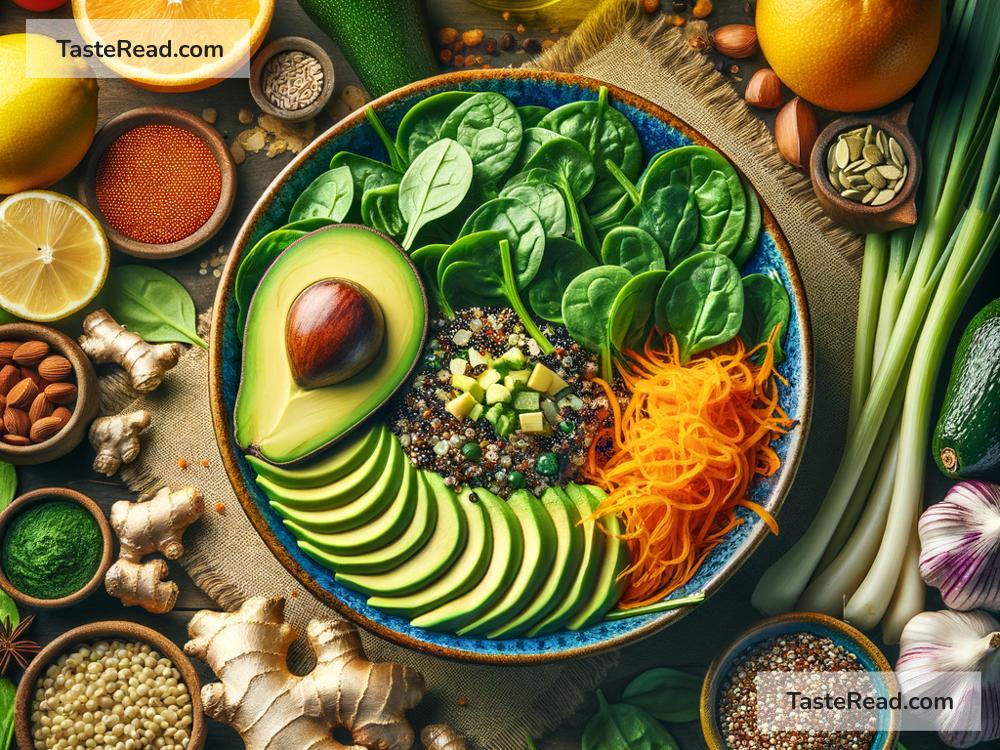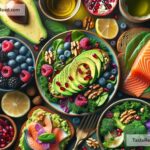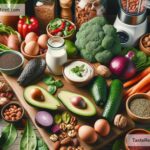Eating Smart: Foods That Boost Nutrient Absorption
When it comes to health, it’s not just about what you eat—it’s also about how well your body absorbs the nutrients from food. Even if you’re eating heaps of healthy fruits, veggies, and proteins, your body needs some extra help to get the most out of them. Luckily, certain foods can work like a friendly assistant, helping your body absorb vitamins, minerals, and other essentials more efficiently.
In this blog post, we’ll explore the best foods and practices to enhance nutrient absorption, all explained in simple English. After all, why eat healthy if you’re only getting half the benefits?
Why Does Nutrient Absorption Matter?
When we eat, our body works hard to break down food, extract nutrients, and deliver them where they’re needed in the body. These nutrients—like vitamins, minerals, fats, and proteins—keep us energized, help fight disease, build and repair cells, and support countless other processes that keep us alive and well.
However, digestion and absorption don’t always work perfectly. Some nutrients need specific helpers to be absorbed efficiently. For example, calcium needs vitamin D, and fat-soluble vitamins like A, D, E, and K need healthy fats to be processed properly. The good news is that the right foods and habits can make this process much smoother.
Foods That Help Nutrient Absorption
Let’s dive into some everyday foods you can include in your diet to supercharge your nutrient absorption.
1. Healthy Fats for Fat-Soluble Vitamins
Fat-soluble vitamins (A, D, E, and K) can only be absorbed with the help of fats. Including healthy fats in your meals ensures your body gets the most out of these nutrients. Here are some great options for healthy fats:
- Avocados: Creamy, delicious, and packed with healthy fats that help absorb vitamins.
- Olive Oil: A drizzle of extra virgin olive oil on salads or roasted veggies promotes absorption.
- Nuts and Seeds: Almonds, walnuts, and flaxseeds are great sources of good fats that pair well with nutrient-rich greens.
2. Vitamin C for Iron Absorption
Iron is crucial for energy and healthy blood, but the body struggles to absorb it unless you pair it with vitamin C. Foods high in vitamin C can make a big difference:
- Citrus Fruits: Oranges, lemons, and grapefruits are great for pairing with iron-rich foods like spinach or lentils.
- Bell Peppers: Snack on red or yellow bell peppers—they’re packed with vitamin C and pair well with leafy greens.
- Strawberries: These sweet berries contain both vitamin C and some iron, making them a double win.
3. Probiotics for Gut Health
A healthy gut helps maximize nutrient absorption. Probiotics are “friendly bacteria” that improve gut health, support digestion, and reduce inflammation. Foods rich in probiotics include:
- Yogurt: Look for plain, unsweetened yogurt with live and active cultures for the best probiotic boost.
- Kefir: This fermented drink is loaded with probiotics to encourage a happy gut.
- Kimchi and Sauerkraut: These fermented veggies are tangy, spicy, and good for your gut!
4. Black Pepper for Better Absorption of Spices
Did you know that black pepper can help your body absorb nutrients from certain spices? For instance, pairing turmeric with black pepper increases the absorption of curcumin (the active compound in turmeric). So, sprinkle a bit of black pepper on your meals if you’re using spices like turmeric.
5. Leafy Greens for Magnesium
Magnesium helps activate hundreds of enzymes in your body that aid nutrient absorption. Leafy greens like spinach, kale, and collard greens are magnesium powerhouses. To enhance absorption, cook leafy greens lightly or pair them with a healthy fat like olive oil.
6. Ginger and Vinegar for Digestive Support
Foods like ginger and vinegar stimulate your digestive system, which can help improve nutrient absorption. For example:
- Ginger: Add it to teas, soups, or juices for better digestion and less bloating.
- Apple Cider Vinegar: A small splash in a glass of water before meals may improve your stomach’s ability to break down food.
7. Whole Grains for Zinc
Zinc plays a crucial role in nutrient absorption and immune health, and whole grains like oats, quinoa, and brown rice are excellent sources of this mineral. Pair them with vitamin C-rich foods for even better results.
Tips to Maximize Nutrient Absorption
Here are a few simple tips to help your body absorb nutrients effectively:
- Eat Diverse Foods: Combining different types of foods helps your body get a range of nutrients and their absorption partners.
- Chew Your Food Well: Digestion starts in your mouth, and properly chewing your food makes it easier for your stomach and intestines to break it down.
- Don’t Skip Healthy Fats: Many vitamins need fats to be absorbed, so avoiding “fat-free” products isn’t always a good idea.
- Stay Hydrated: Water helps in digestion and nutrient transport, so drink lots of it throughout the day.
Final Thoughts
Eating healthy isn’t just about piling your plate with nutritious foods; it’s also about knowing how to make the most of them. Pair vitamin-rich foods with the right ‘helpers,’ focus on gut health with probiotic-rich options, and drink plenty of water to keep your body functioning at its best.
When you take a little care to combine the right foods and follow digestion-friendly practices, your body will return the favor by giving you more energy, stronger immunity, and better overall health. So, eat smart and let your body absorb the goodness!


